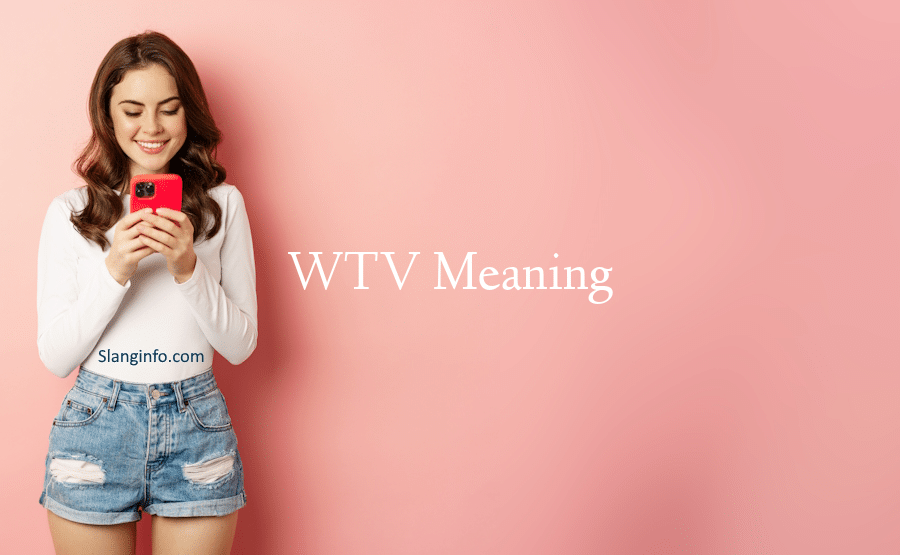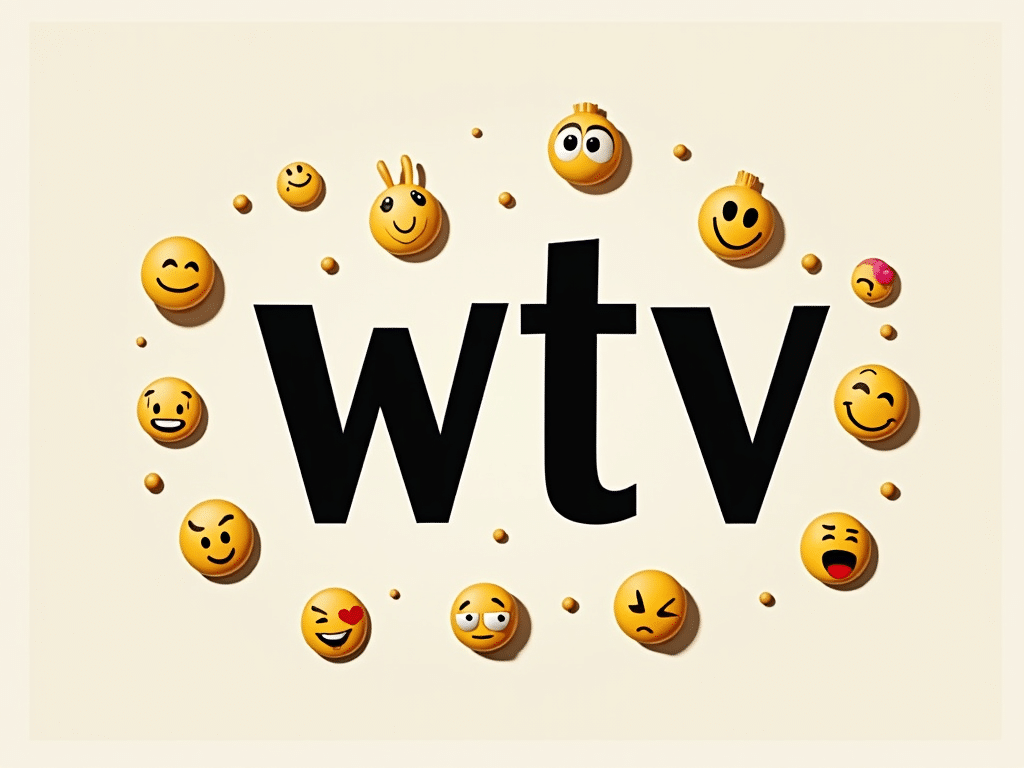WTV is a common abbreviation in digital communication that stands for “whatever.” It’s often used in casual conversations to express indifference or a laid-back attitude. Whether you’re feeling nonchalant or just don’t have a strong opinion, WTV is your go-to phrase.
| Key Takeaways | Details |
|---|---|
| Meaning | Stands for “whatever.” |
| Common Usage | Used to express indifference, boredom, or a lack of interest. |
| Cultural Impact | Popular among teens and young adults in informal settings. |

Origins and History
WTV emerged as a shorthand for “whatever” in the early days of social media and texting. It gained popularity with platforms like WhatsApp and Snapchat, where quick, concise communication is key. As digital conversations became more prevalent, WTV found its niche as an easy way to convey a carefree attitude.
Meaning and Interpretation
WTV can be used in various contexts to express different sentiments:
- Indifference: Used when you don’t have a strong preference or opinion.
- Boredom: Indicates disinterest or lack of enthusiasm.
- Nonchalance: Conveys a relaxed or laid-back vibe.
Cultural Context and Impact
WTV reflects the casual nature of modern communication, where brevity is valued. It’s widely used among teens and young adults as a quick way to downplay the importance of a subject. This mirrors trends like using periodt to emphasize points without lengthy explanations.
For more on how slang shapes communication, check out our article on Spill the Tea.

Usage in Digital Communication
Here are some examples of how WTV might be used:
- Texting a Friend: “Where should we go for dinner?” “WTV, I’m good with anything.”
- On Social Media: “Do you want to join the game?” “WTV, let me know.
- In Casual Chats: “Wanna watch a movie?” “WTV, you pick.”
These scenarios show how versatile WTV can be, making it a handy tool for everyday communication.
Tone and Context
The tone and context in which WTV is used can significantly influence its interpretation. Depending on the situation, it can come across as either laid-back or dismissive:
- Laid-Back: When used among friends in a relaxed setting, WTV conveys a chill attitude. For example, “WTV, I’m just here to hang out.”
- Dismissive: In a more serious conversation, it might seem like you’re brushing off someone’s concerns. For instance, “WTV, it’s not a big deal.”
Understanding the context is crucial to ensure your message is received as intended.
Combining with Other Slang Terms

WTV can be paired with other slang terms to add nuance and context to your messages. Here are a few examples:
- With Spill the Tea: “WTV, let’s just spill the tea later.” Spill the Tea
- With Delulu: “You’re being delulu about this, WTV.” Delulu Meaning
These combinations allow you to convey more specific intentions or emotions in your conversations.
FAQs
Here are some common questions about WTV:
- When is it appropriate to use?
- WTV is best used in casual settings among friends or peers.
- Can it be used in formal settings?
- It’s generally not suitable for formal communication due to its informal nature.
- How does it compare to similar abbreviations like IDC (I don’t care)?
- While both express indifference, IDC can come across as more dismissive compared to the laid-back vibe of WTV.
Tips for Using WTV Effectively
Using WTV can enhance your digital conversations. Here are some tips:
- Consider Context: Make sure the tone matches the situation. A casual check-in might not be appropriate for serious discussions.
- Know Your Audience: Different people might interpret acronyms differently. Be mindful of who you’re communicating with.
- Be Clear: If you’re using WTV in a dismissive way, ensure that your intentions are clear to avoid misunderstandings.
For more insights into effective communication and slang usage, explore our guide on Giga Chad and other trending terms.
Conclusion
WTV is a versatile tool in digital communication, allowing you to effortlessly express indifference or a laid-back attitude. Whether you’re using it casually or with a hint of nonchalance, understanding its nuances can help you communicate more effectively. Stay informed about evolving slang trends to keep your conversations fresh and engaging!







